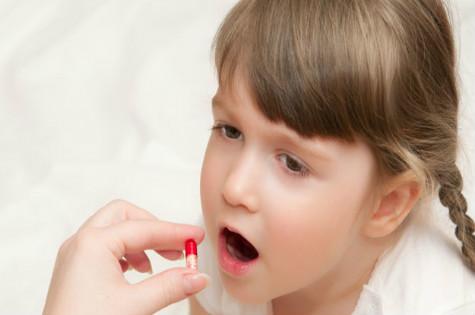This year, NPS MedicineWise are reminding parents and caregivers the important of being medicine-wise through Be MedicineWise Week. Leading parents in Australia’s largest movement to raise awareness on the importance of dosing by age and weight is Jimmy Rees (Jimmy Giggle from‘Giggle and Hoot’ on ABC Kids).
According to NPS MedicineWise, a recent poll they conducted revealed that parents are unsure about the many aspects of giving medicine to their children. The biggest concern is that parents of children aged 4 years and below are the most uncertain about administering medicine to their children. 43% of parents said they usually just make an educated guess on the dose, which can cause medication errors. These are very young children who require careful attention especially when it comes to administration of medicine.
“It’s great to have the opportunity to spread the word about how small mistakes can cause big problems in little bodies when it comes to children’s medicines. I’m a dad, I work with kids and entertain kids across Australia, so I’m happy to spread the word on how important it is to accurately give children medicine to avoid accidental overdosing,” Jimmy Rees said.
“This Be Medicinewise Week is a great time for us all to learn a little more about children’s medicines. Some of the top tips I’ve learnt are—be prepared, read the label, weigh your children regularly as it’s important for working out dosage, know how to use measuring devices, keep records of doses and be safe and responsible with medicines around the home,” he added.
When asked about medicine issues that confused them, surveyed parents answered:
- 19% reported feeling confused about whether to expect side effects
- 18% were confused about dosage/how much medicine to give
- 18% were unsure about how long their child should take the medicine
- 18% indicated confusion about whether or not the medicine is working
- 14% replied that dosage devices can be hard to use.
Pharmacists on the NPS Medicines Line, on the other hand, some of the common questions they received from parents include:
- What age can a child use a certain medication?
- When can medicines be used together?
“There are many children’s medicines available, in many formulations and many come with their own, separate dosing devices. So it’s not surprising that the survey picked up on a level of confusion,” Sarah Spagnardi, manager of the NPS Medicines Line said. “No one wants to see figures rising for medicine mistakes in children. That’s why this Be Medicinewise Week, we are reminding parents and caregivers about the importance of accurately measuring and administering medicine. Don’t take the risk—ask for dosing guidance from your doctor or pharmacist if you are confused.”

Further information is available in the Be Medicinewise Week video and fact sheet “How to be medicinewise with children”. Find out more information about this health campaign at www.nps.org.au/be-medicinewise-week.
NPS MedicineWise media enquiries: Elisabeth Bowdler on (02) 8217 8667, 0419 618 365 or ebowdler@nps.org.au and Stephanie Childs on (02) 8217 9249 or schilds@nps.org.au
NSW Poisons Information Centre media queries: via The Children’s Hospital at Westmead on (02) 9845 3364








 Agree (0)
Agree (0) Disagree (
Disagree (







__small.png)










